The Dirty “DIY” Truth for Fly Anglers
DIY Fly Fishing Debate: Truth or Slander?
Note: This essay is about a quasi-controversial topic gaining momentum in the fly fishing world today. The topic centers around the DIY (Do It Yourself) approach to fly fishing. On the surface of this issue there’s a question that commonly comes up: How is the DIY approach to fly fishing impacting local fisheries? Another, more specific question is: How is DIY fly fishing impacting business for local guide companies? (Can you guess who’s asking that question?) Let me pose a few other questions that need to be asked: Who is and who isn’t a DIY fly angler? What does “DIY fly fishing” really mean? And: Should the DIY’er be considered the “bad guy” in this fishy saga? Answers to these questions might help all of us in our collective path toward a common goal of having healthy, sustainable fisheries for all to enjoy. What say you on this DIY fly fishing debate: truth or slander? Or, is it a little bit of both?
The “who’s who”
This is an issue that’s close to my heart. I’m pretty sure I’m not the only one. Those involved are… well… all of us. Fly fishing isn’t easy. If you’ve chosen this life you’ve already made a conscious choice to take the path less traveled. More than likely you have a drive within to overcome strife in pursuit of a dream. And, that dream is different for all of us. For some it’s landing a new species of fish they had never caught before. For others it’s about taming the giant—landing the biggest fish in the pool. And, for others it’s all about embarking on that primal journey toward the unknown and conquering uncharted territory.
This essay has been simmering in my brain for a while. I finally broke the seal after coming across a few heated magazine articles and online posts. There are people in the industry that have been very outspoken on the subject. These stakeholders fall under a broad category of folks who take personal responsibility in protecting their local fisheries as sustainable resources. If you look a little closer, these folks are often the ones who make a living off these waters in some fashion. Get the microscope out and you’ll find that there are a few fly fishing guides who’ve had negative encounters with “DIY” newcomers intruding on their home waters. And, based on these experiences, some of these guides have publicized their stance in magazines and online. While I could easily focus this essay on these outspoken guides and the business practice of their companies, I’d much rather focus on the folks found on the other side of this coin—the dirty DIY’ers. These wandering souls are the fly anglers who generally travel to fisheries from parts unknown. These wide-eyed warriors are the guys and gals who choose to figure out, for themselves, how to find and catch the fish they’ve dreamt about. The journey they take is often filled with challenge and strife. And much to the chagrin of local outfitters, these DIY’ers often refrain from hiring fly fishing guides to help them on their chosen quest. Unfortunately the DIY voice has remained fairly quiet on the subject. But, are these the people everyone’s been ranting about?
It might seem as if I’m directing this essay to the entire fly fishing guide community. This is simply not the case. I want to be clear: not all fly fishing guides are enraged about DIY’ers. However, if you are a guide who unjustly criticizes the DIY approach to fly fishing without acknowledging those who take responsible DIY action, then yes I’m talking to you. You might be “Territorial Timothy Fly Fishing Guide”. You might be “Shotgun Sally Riverfront Property Owner”. You might be “Beefcake Johnny Raft Guide” (Shaka brah!). But you also might be “Captain Level-Head Lydia” who understands that for every inconsiderate, independent fly angler who tramples through the lagoon and scares away all the bonefish there’s a responsible DIY’er exploring the same waters while making conscious efforts to tread lightly in shared spaces. Whomever you are, please get your facts straight before accusing the masses.
True blue DIY’ers are the ones who spend more than ample time (sometimes to their detriment) researching their destination’s local waters, the fish biodiversity in those waters, the local laws and regulations, the local cuisine, the local cultures, the potential hurdles to overcome, interesting detours… I can go on and on. The point is, they generally over-plan and are well prepared for the journey ahead. The ignorant DIY’ers, the ones in question, tend to skip much of the aforementioned research and often make poor decisions in these unknown locales. And, yes I’m aware that there are DIY’ers who are true dirtbags. But “ignorant” is very different than “dirty”. Regardless of which level they’re at, it’s the poor decisions of these people that can negatively affect these waters and the folks closely connected to them. Are they the only ones who have the potential of being ignorant? Are they the only dirtbags who carry fly rods? News flash: not all fishing guides sport halos above their heads. Let’s not forget that.
“Do-It-Yourself’ers” or
“Dirty-Ignorant-Yahoos”?
I’ve scoured the intraweb, picked at the bones and sifted though the piles of fah fah related to this controversial topic regarding the impacts that DIY’ers have on the fly fishing industry. Some of these nuggets came from thought provoking, well researched essays. Other nuggets came from the ramblings of bitter people, there’s no other way to put it. Here are some of the nutty clumps, arguments FOR and AGAINST, that got caught in the scooper:
FOR:
- DIY trips are less expensive without the exorbitant costs for hired guides
- DIY trips have a high element of adventure when you factor in the unknown
- DIY fly fishing rewards are sweeter because the journey is more challenging
- DIY trips inherently provide a high probability for unique, local interactions
- The challenges of a DIY trip makes for a higher threshold of learning
AGAINST:
- DIY’ers tend to ruin choice fish habitat within local fisheries not only for the livelihood of the fish themselves but for the local guides who make a living helping wide-eyed, paying customers target said fish
- DIY’ers don’t contribute much to the local economy
- DIY’ers often break laws and regulations
- After a day with a hired guide, DIY’ers will often take advantage of the knowledge they’ve learned and revisit some of same “secret” spots where they were successful
- DIY’ers have a higher learning curve and can endanger themselves and others on the water
- DIY’ers might not even find the fish they’re targeting
- If DIY’ers find fish, they might not have the time or knowledge to figure out how to catch them
- Local guides provide the best knowledge not only of the area (history, wildlife, etc) but also of finding and catching targeted fish
- The DIY’er who chooses not to hire a guide will more than likely catch less fish (if any all) and in a lot less time
What gives?
First off, this list should be viewed as merely interesting and not factual. Many points are gross generalizations while others are highly subjective. I won’t bother breaking down each one. Did you notice that there are a lot more arguments against DIY fly fishing? First off, this list isn’t Gospel. It’s not etched into stone tablets. The truth is that most of the folks who have spoken out on the subject are either fly fishing guides or have worked as fly fishing guides at one time. It makes sense since they’re the ones covering the most water. To those who are outspoken and firmly against DIY, let me ask you a couple questions. Have you ever gone on a fly fishing trip to a new destination and didn’t hire a local guide? Have you ever built an addition to your home without the aid of a contractor? Have you ever fixed your car all by yourself instead of taking it to a mechanic? My point is that guide companies can be useful resources. Most of them are good at what they do because of increasingly heavy competition in the industry. But, hiring a guide isn’t mandatory.
Shout out
I do understand where the passion comes from. Fly fishing guides often know their home water better than anyone. Why? Because they spend so much time on it. They have the uncanny ability to identify the subtle changes, good or bad, from day to day. Some of these men and women even work part time or volunteer as field researchers on the water collecting data and performing surveys. It’s natural that they carry part of the weight and responsibility of taking care of these waters as stewards of the fishery. These “guardians” are crucial components of lifegiving watersheds as generations come and go.
Bottom line: it’s human to be a little territorial, especially if a newcomer is being disrespectful to the places you love. But, you mustn’t place blame on all DIY’ers. Now that would be downright prejudice. You follow me? And, keep in mind, we’ve all been there—breaking an unwritten rule when no one was looking. Hopefully we learned from it whether someone shed the light for us or we figured it out ourselves. Ultimately it’s knowledge that empowers us moving forward.
The DIY mind
True DIY fly fishing is about choice. It’s choosing what’s behind the curtain. It’s choosing to go on a blind date. It’s choosing to hit RANDOM on Spotify. The element of freedom can still be a part of any fly fishing experience. It’s choosing the path of the unknown… the path of wild exploration… that makes us the curious humans that propelled our species to where we are today.
You might have guessed it. I’m a DIY’er. I prefer to take side roads as opposed to highways while on road trips. I prefer to run through mud on a trail rather than side-step it. I prefer camping instead of hotels. And yes, I prefer to figure out, for myself, how to obtain those sweet rewards while fly fishing. Chasing Scale is all about fly fishing adventure. Without the DIY component there’s not much adventure left.
Have we lost that drive to explore?
Is exploration gone? Is it now limited to what we see on contrived “reality” TV? It sure does seem to be more and more a truth in today’s society. But many of us still have this drive to explore new places. We still yearn for new and wild experiences. For me it’s an omnipresent energy that is entwined into the fibers of my being. Now, this is just my humble opinion: hiring someone to lead you to the fish, choose your fly and tell you where to cast doesn’t seem like much of an adventure… it seems more like a penthouse suite rather than a tent. For me, the up and down journey is the bee’s knees! I’ll yell this from the mountain tops. I’ll take this attitude to my grave! I couldn’t care less about hoisting that hawg. It’s nice, sure. Instagram seems to love the hero shots. But, what events led up to that triumphant moment? It’s the journey that truly matters. And this journey should not include unlawfully traipsing through private property or hammering a highly impressionable and fragile fish habitat. It comes down to respect: respect for the environment and respect for others who enjoy it just the same (not to mention those who call it their office).
Helping to give DIY’ers a good name
A few pearls to help budding DIY’ers:
Study up
Take some time and research the local regulations regarding the fisheries, public vs. private water and the potential access points. You can utilize books, blogs, forums, government websites and online map resources like Google and Bing. Make sure you have the proper documentation, licenses and permits before hitting the water. You can also identify some of the companies who guide the local fisheries where you’re headed. Many outfitters have websites these days and they’ll often outline the trips they offer along with some general info on the waters they hit. This info could help you avoid potential conflict. On a side note, it’s not a bad idea to put a little extra time in to learn about some of the local people who are directly connected to the watershed, ie. the farmers, the fishermen, the small towns, etc. The knowledge you gain and the intricacies you uncover can really provide a sense of place as you travel to new destinations.
Spend some dough
Support the local economy by spending a little cash at the mom-and-pop eateries and humble general stores. Local flavor is the spice of life. You’ll walk away with a full belly and maybe a story or two. And, the people who work at these gems can be your golden ticket to secrets on the water. Think about it, where do you think local fishermen go? And small talk happens. This brings us to the next nugget…
Ask a local
Don’t be afraid to talk to the locals about safe and responsible access to the water. You just might learn about a honey-hole or make a new friend.
Get permission
Before accessing the water through private property, ask permission from the owner. Better yet, catch dinner for them. If they aren’t home when you arrive, don’t trespass. Plain and simple. Find another way to the water.
Clean your gear
Before you even step foot on that plane and head to some exotic destination in search of some mythical, prehistoric aquatic beast… clean your gear. It’s the responsible thing to do, whether traveling abroad or staying in your home country. Let’s keep these fisheries pristine. Introducing foreign invaders into fragile ecosystems can be doomsday. Do your part in protecting these environments.
Travel with a kayak
Inflatable kayaks not only help you cover more water they also lesson wading impact on aquatic substrates. Using a non-motorized vessel is a lot less invasive than any rumbling motor out there. Advanced Elements has some quality yaks that are well under 50 lbs and travel well. I’ve been using my “Advanced Frame®” kayak (AE1012) for about 5 years now and haven’t had to patch it up yet (knock on wood). It has enhanced my DIY adventures tremendously.
Simmer down now
Don’t yell when you land a fish. I know it can be difficult to contain your excitement. Maybe you want to let your buddy know you landed a pig. If you want your buddy to grab the camera for your gratuitous hero shot then make a plan to stick together. If you choose to separate, it’s not a bad a idea to carry handheld radios. A quiet angler is a respectful angler. All of us hope and pray that the fisheries we explore are natural and pristine. Leave the whooping and hollering to the coyotes and herons.
Handle with care
You’ve successfully navigated over the DIY hurdles. And now you finally have a fish on! Be respectful to that fish. The following should be common knowledge to all fly anglers practicing proper catch and release methods. Land the fish as soon as the size of your leader and the weight of your rod will allow, ie. quickly. The more time that fish is on the line, the higher the probability it won’t survive the battle. Wet your hands before handling it. Fish have a protective slime layer covering their bodies which helps to protect them from infectious diseases. Your dry hands could potentially remove some of that protective slime. It’s understandable that wet hands can make holding onto a feisty fish a bit more difficult. That being said, you can simply turn the fish over. This often helps to calm it down before removing the hook and raising the fish out of the water. Truth be told, the less you handle the fish the better. Unfortunately barbed hooks can increase your time with that fish. Make sure you have long forseps, maybe even a hook remover, if you’re forced to reach down the gullet to access that embedded hook. Now, about that photo. I don’t blame anyone for wanting to photo document these moments of triumph. I’m with you. I personally think the best photos are the ones that show the fish partly submerged. Like a soft flannel shirt, it just feels right. When you’re ready, approach the “hero” photo with precision and care. The health of the animal should always be your priority. If a great photo results in a dead fish you need to stop and rethink what you’re doing out there! If the fish is injured or severely depleted of energy it’s time to put all your attention toward rehabilitating the fish and getting it to back to safe water asap. That’s the straight skinny.
Out of sight, out of mind
Whenever possible try to avoid contact with guide boats. This doesn’t mean you need to jump into the bushes when a guide rounds the corner. It only means you should be ultra aware and hyper sensitive to your surroundings. We all know what goes through our mind when we’re exploring a gorgeous and, seemingly, secluded spot on the water and we find someone already there! It happens. Believe it or not there are others out there who are interested in the same thing you are. After all, there are 7.6 billion people fighting for space on this cosmic orb we call earth. Make an effort to be inconspicuous. If contact is unavoidable, try to be communicative with your new friends. Ignoring their presence could be viewed as an insult. Show your excitement. You’re human. Being personable never hurts. After all, you share a common interest. It might even be a good idea to let them know you’ll be moving on soon. Trust me, it’ll go a long way.
Put away that hammer
You found a honey hole. Enjoy it for a bit and then leave it alone despite all your urges to stay. Try not to hammer it. Hitting one spot over and over on the same day or even on multiple days can drastically change the behavior of the fish. This will not only affect your success and overall experience but it will also affect others, including guides with clients who might be accessing that very same spot. Catch a fish or two and move on. If you know there are lunkers hiding in a particular hole but you’ve only managed to catch minnows with your size 2 crystal bugger on a fast retrieve, you might want to change it up my friend. It’s obvious that whatever you’re doing is not enticing that monster. Maybe add some shot to help the fly sink. You also might try slowing your retrieve. If you’re not willing to adjust your fly pattern and presentation then maybe you should just move on to another spot. To avoid these issues from happening it helps to survey the scene prior to fishing a new location. Get to know the subtleties. Think about how you’re going to maximize your time there. Where are the fish? What’s their behavior? Is it a popular spot? If so, tread extra lightly. Don’t just guess what will work, make an educated guess. Efficiency leads to success. The more efficient you are on the water, the less damage you will inflict.
Safety first
Be ready for disaster. The sh*# will hit the fan at some point on your DIY travels. It’s this element of danger on the periphery that draws many of us to this style of travel. The successful DIY’er acknowledges the danger and prepares for it. Whether alone or with a buddy, when you approach a new day in a new area you should always have a contingency plan. Safety gear such as radios, PFDs and First Aid kits can save your trip, not to mention your life. “DIY” inherently means that you will do things your way. “DIY” also carries with it the notion that you will be a responsible angler and have the knowledge and wherewithal to get yourself out of sticky situations if need be. Guide companies are prepared for unexpected mishaps on the water. It’s one of the reasons they charge the fees they do for their services. While you’re nursing a broken leg and struggling to fight off the onset of hypothermia or you simply ran out of food… a guide boat could quite possibly be somewhere on the water… hopefully not too far away. And they’re usually quick to help out. But, the last thing you want is for them to have to put their own lives and the lives of their clients on the line to save your butt. Do yourself and the industry a favor: plan ahead and make wise decisions.
Remember summer camp?
From as far back as I can remember the idea of “leave no trace” was burned into my memory banks. Tread lightly everywhere, especially in fragile areas. Walk on rocks instead of plants wherever possible. Use non-toxic tungsten instead of lead-based split shot. Leave the water and adjoining ecosystems in a better state than when you arrived. It’s super easy to bring a small rubbish bag to collect discarded leader material, spin fishing nylon line or beer cans (you can crush them) while you’re scanning the water for risers. I’m not saying organize a community clean-up effort here. I’m just saying that a little goes a long way. The example you set may just rub off on other anglers.
Give back
A simple donation to the stewards who manage and protect the local fisheries goes a long way. No doubt they could use the help. Not to mention, it feels pretty damn good.
Slump buster
Yep, I’m gonna say it! Consider a guide. Put your money together and book a half-day trip. You just might be surprised at what you’ll learn. A guided trip could actually turn out to be the slump-buster you needed. And, it’s never a bad idea to see things from a different perspective. No doubt, it’ll only make you a better fly fishing angler… guaranteed. There is a catch—while it’s great to learn about some honey holes from knowledgeable guides, it’s not great when you return on your own, to those very same spots the next day to cash in again. Not cool bro! This is considered a betrayal of trust in the fly fishing industry. You might as well piss in their morning coffee. You entered a brotherhood when you hired them. They showed you a good time. Now you’re taking advantage of them. They shared with you wisdom that took who knows how long to learn. Take what you learned and explore elsewhere.
Stand your ground
When you’re getting yelled at by “Territorial Timothy Fly Fishing Guide” for fishing his spot when you’ve done your due diligence to find it through honest research, you’re fishing with integrity and care, and you are there within your rights … then stand your ground. Don’t be bullied. You’ve done nothing wrong. You’ve earned all that’s good about being on the water in a that beautiful place. Don’t let anyone take that away from you. Better yet, be the bigger person by explaining your side and then move on. There’s other fish in the sea and more important battles.
Ongoing education
DIY fly fishing debate: truth or slander? What do you think? Here are a few links that I hope you’ll find useful as you plan your next DIY fly fishing adventure.
- The Hatch: “DIY Fly Fishing: Why and How”
- Fly Paper: “Do It Yourself Debate”
- Angling Trade: “Guides Gone Wild… You’re Slowly, Steadily Killing the Sport of Fly Fishing”
- Feathers and Fluoro: “Ruining a Fishery’s Reputation”
- On the Fly Mag: DIY Bonefishing
“But they’ll never take our freedom!”
The reality is that no two fly fishing experiences are the same. Each carries its own challenge and reward. You (along with God, Baby Jesus and Mother Nature) have the freedom to choose how challenging you want your DIY experience to be. In the end the reward you receive will reflect the obstacles you must overcome. Now make some magic!
Come on, hit me with your best shot
So, to you the reader: where do you stand? I’d love your feedback, good or bad. If there’s public water on this planet, there will be DIY fly anglers. It’s an issue that will never cease. Through education and growing awareness we can massage most of the nasty little kinks out. I truly believe this.
I’ll leave you with words of wisdom from a great man:
“Let’s just blend this little rascal here, ha! Happy as we can be.” – Bob Ross
Story by Brock Munson
Photos by Ryan Bonneau
cofounders • Chasing Scale
Brock is the lead writer at Chasing Scale • brockmunson.com
Ryan Bonneau is the lead photographer at Chasing Scale • ryanbonneauphoto.com

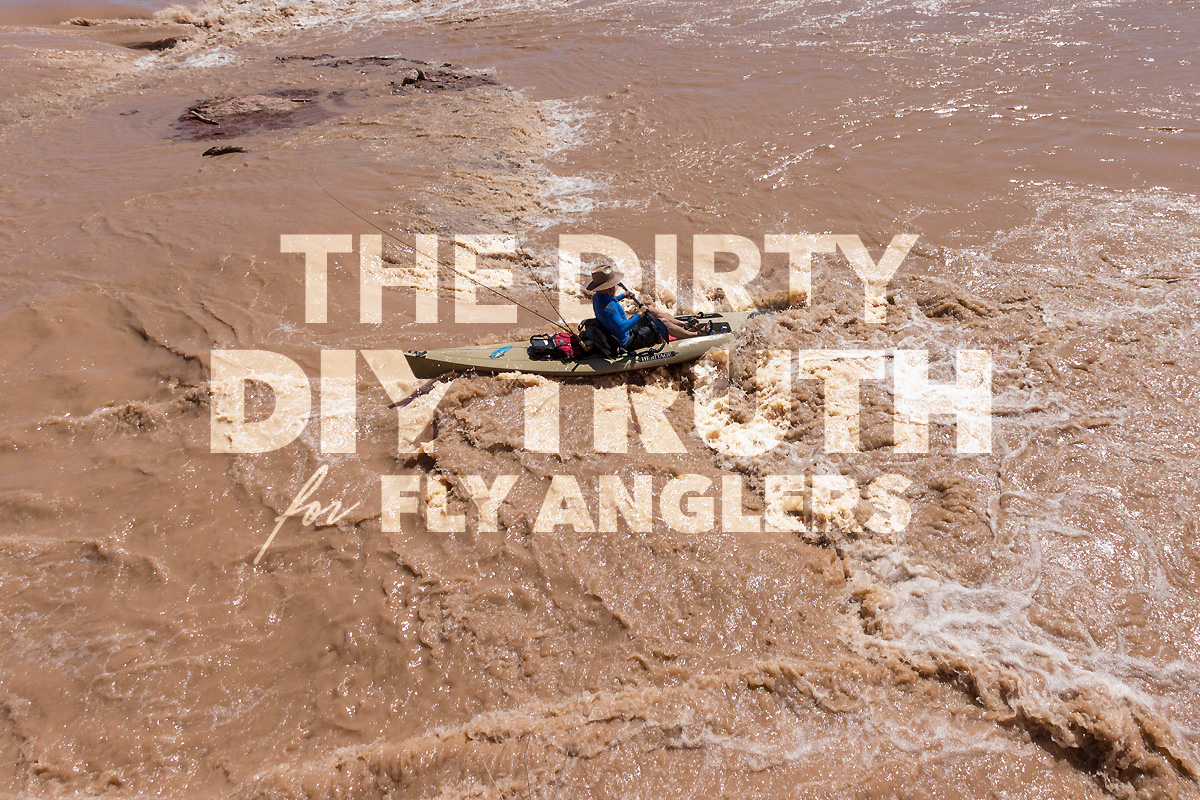
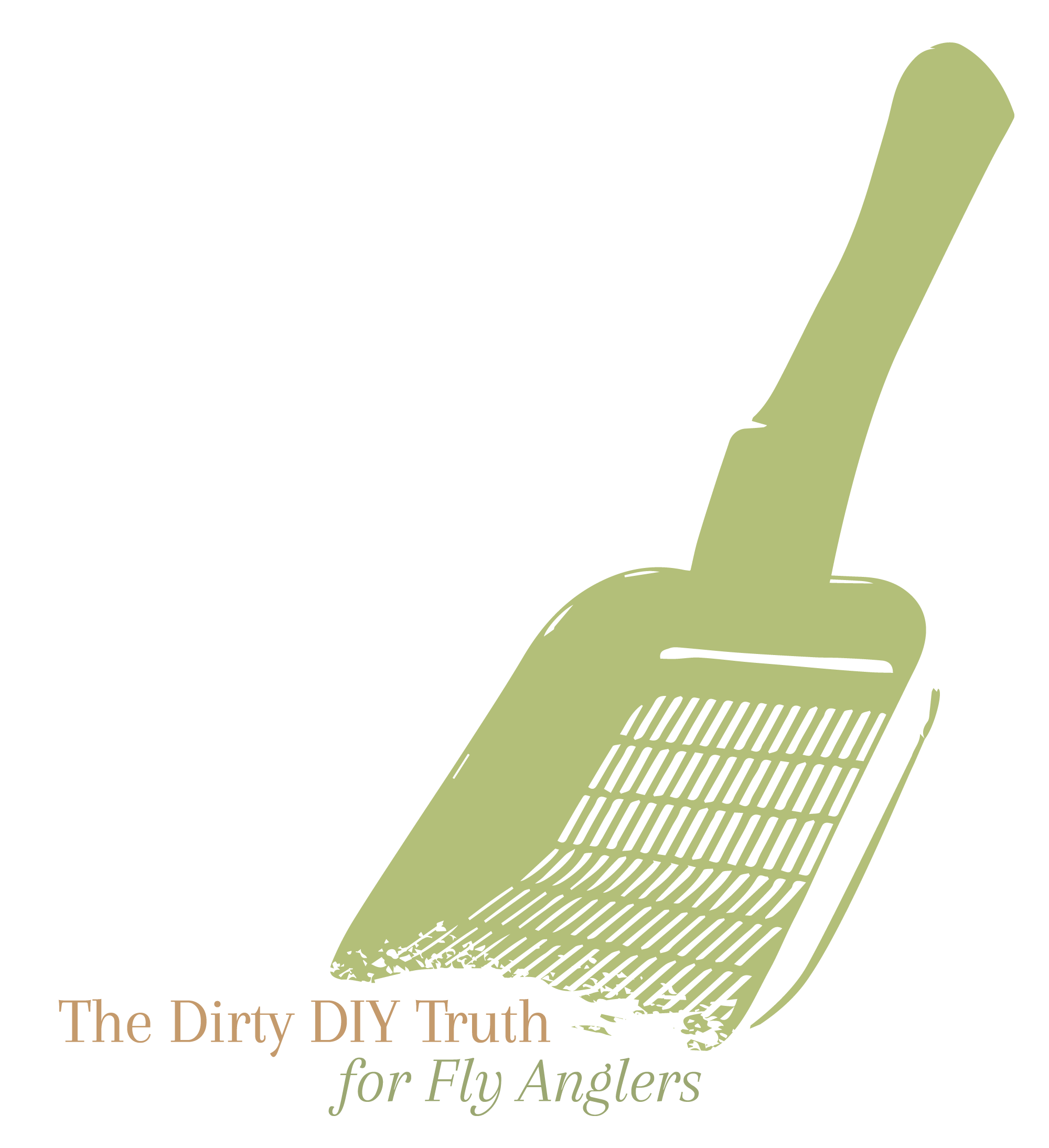
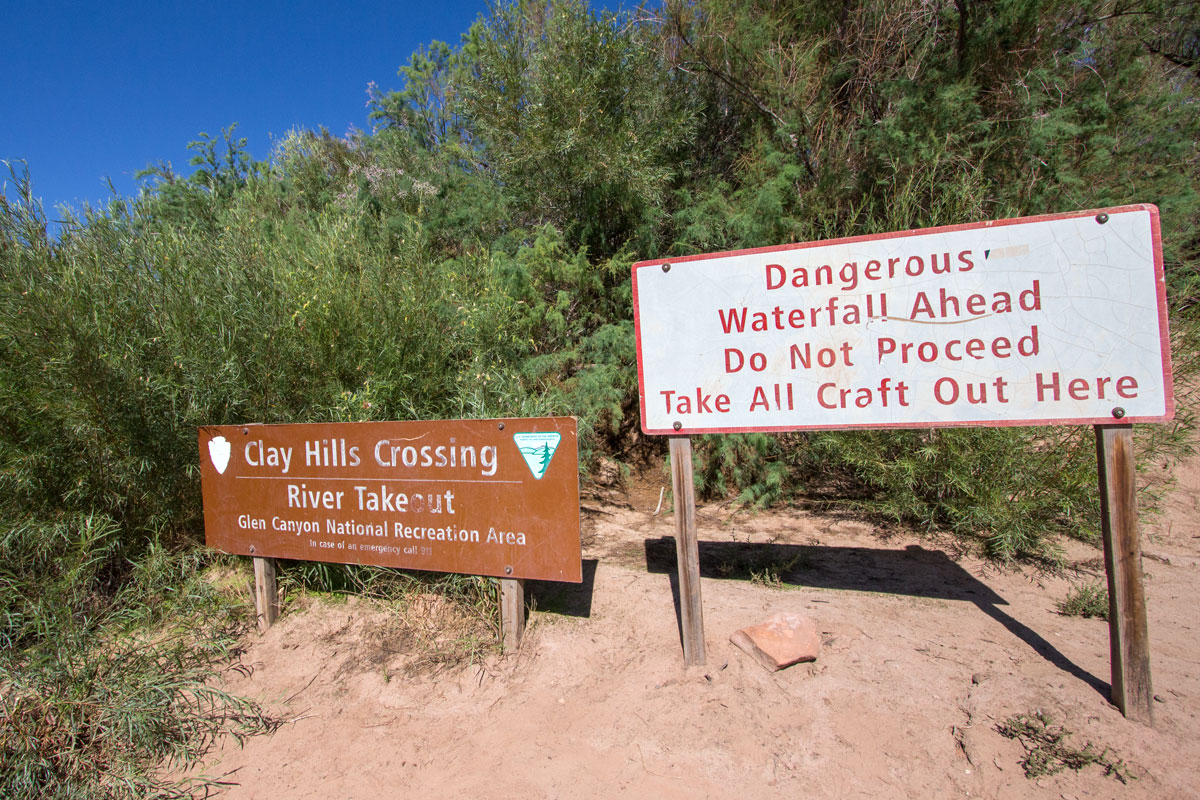
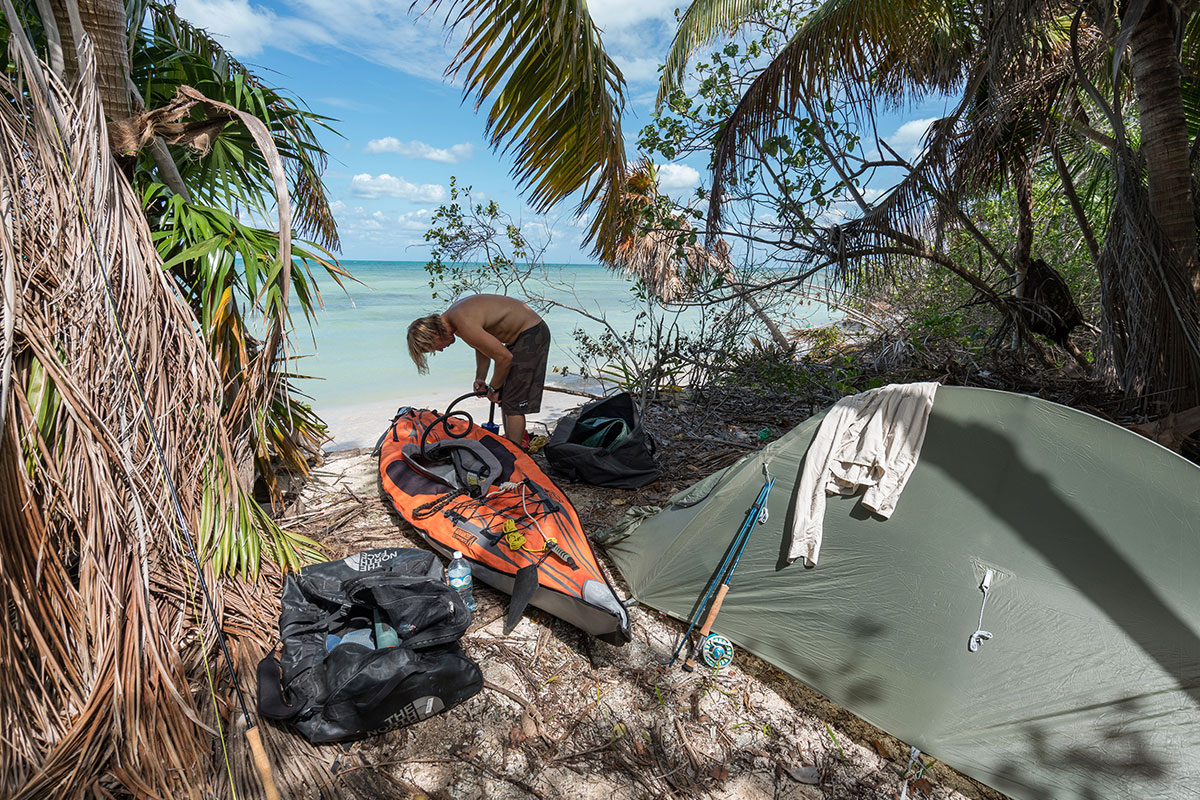
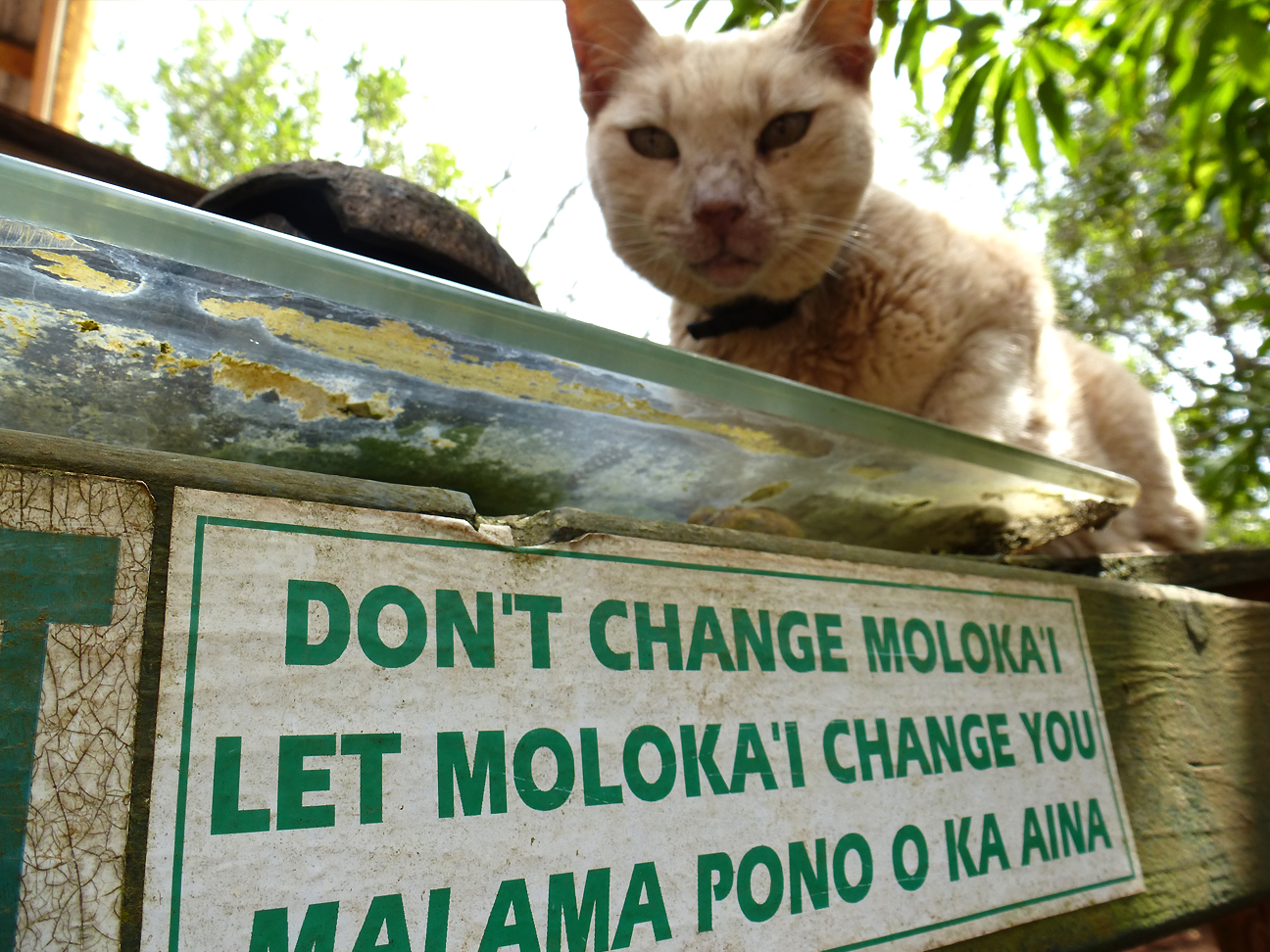
In the United States, catch and release was first introduced as a management tool in the state of Michigan in 1952 as an effort to reduce the cost of stocking hatchery -raised trout. Anglers fishing for fun rather than for food accepted the idea of releasing the fish while fishing in so-called “no-kill” zones. Conservationists have advocated catch and release as a way to ensure sustainability and to avoid overfishing of fish stocks . Lee Wulff , a New York-based fly angler, author and film maker, promoted catch and release as early as 1936 with the phrase “Game fish are too valuable to be caught only once.”
By the way! The best essay writing service – https://www.easyessay.pro/